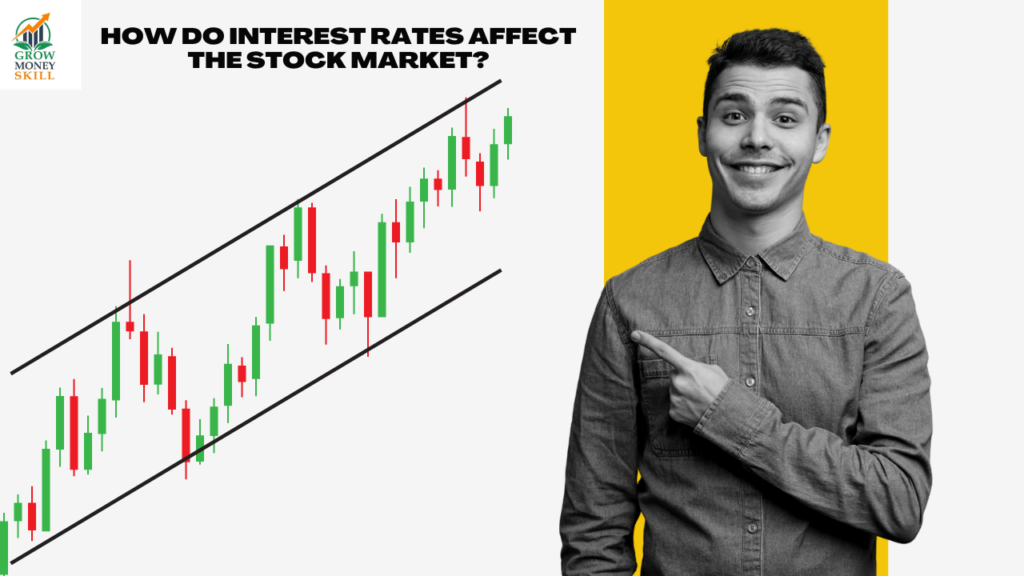To buy Hyundai inventory in India, you want to follow...
Read MoreMost Recent Blogs
Kyle Verreynne Net Worth
An industrious South African cricketer, Kyle Verreynne has done well...
Read MoreDeepak Mohoni Net Worth in 2024
Deepak Mohoni is a famous call within the Indian stock...
Read MoreSherrone Moore net worth in 2024
Sherrone was born on 31st December in the year 1974,...
Read MoreYour Financial Education
Financial Education वित्तीय शिक्षा आपके धन का कुशलतापूर्वक प्रबंधन करने...
Read MoreTolins Tyres IPO Share Price
Tolins Tyres IPO share Price Tolins Tyres is gearing up...
Read MoreKross Limited Share Price
Kross Limited share price Kross Limited is a distinguished player...
Read MoreBrett Rypien Net Worth
Brett Rypien net worth American football quarter back Brett Rypien...
Read Morewhat is Financial Planning?
Financial planning is a comprehensive approach to handling your price...
Read MorePopular Blogs
Bill Pascrell Net Worth in 2024
Bill Pascrell net worth: Bill Pascrell’s net worth is a...
Read MoreWhat is Nutrition? : Nutrition and Mental Health
Nutrition is the cornerstone of a healthy lifestyle. It encompasses...
Read MoreDecoding Variables: Understanding Their Significance and Functionality
Variables lie at the core of programming and data analysis....
Read MoreGuide to Creating Stunning Web Pages by HTML
HTML stands as the cornerstone, the bedrock upon which the...
Read MoreHow do interest rates affect the stock market fees drastically impact the stock marketplace as they have an effect on borrowing expenses, purchaser spending, and corporate profitability. When interest fees upward thrust, borrowing becomes extra luxurious for corporations and clients, leading to reduced spending and funding. This can decrease corporate income, inflicting inventory fees to fall. Conversely, whilst hobby charges are diminished, borrowing prices decrease, stimulating spending and investment, that could enhance corporate profits and power inventory charges higher. Additionally, better interest quotes make bonds and savings debts more appealing in comparison to shares, doubtlessly main to a shift of funding faraway from the inventory marketplace. Overall, changes in hobby costs are carefully monitored via buyers as they play a essential position inside the marketplace’s performance.
Table of Contents
ToggleUnderstanding Interest Rates
Interest charges are the value of borrowing cash or the return earned on financial savings and investments, expressed as a percent of the foremost amount. When you take out a loan, the hobby charge determines how a good deal greater you’ll pay over the years. Conversely, whilst you deposit cash in a financial savings account or invest in bonds, the interest fee determines how plenty you may earn. Interest costs play a vital position in the financial system, influencing customer behavior, enterprise funding, and overall economic increase.
How Are Interest Rates Determined?
Interest prices are determined via a combination of factors, which include:
Central Bank Policies:
Central banks, like the Federal Reserve in the U.S., set benchmark prices (e.G., the federal budget fee) that affect all different hobby fees within the financial system.
These charges are adjusted to control inflation and stabilize the economic system. For example, rates might be raised to cool down an overheating economy or reduced to stimulate increase in the course of a recession.
Inflation:
Higher inflation typically ends in higher hobby costs as creditors want to make amends for the decreased purchasing power of cash over the years.
Central banks may additionally boom fees to slash inflation, making borrowing more expensive and saving greater attractive.
Economic Conditions:
Strong financial growth can cause better interest fees as demand for credit increases.
During financial downturns, charges may be reduced to encourage borrowing and investment.
Supply and Demand for Credit:
High call for for loans can drive up interest fees, whilst an ample deliver of credit can cause decrease costs.
Lenders modify fees primarily based at the chance of default and the availability of funds.
The Relationship Between Interest Rates and the Stock Market
1.Cost of Borrowing: Higher costs growth borrowing fees for organizations, lowering profits and doubtlessly lowering stock fees. Lower prices decrease borrowing fees, boosting profits and probably raising stock costs.
2.Consumer Spending and Business Investment: Higher costs discourage spending and funding, probably decreasing inventory costs. Lower prices encourage spending and funding, potentially elevating stock prices.
3.Investment Alternatives: Higher charges make bonds and savings extra attractive than shares, probably leading to lower inventory costs. Lower charges make shares greater appealing than bonds and savings, probably leading to higher inventory costs.
4.Economic Growth and Corporate Profits: Higher prices can slow monetary boom and decrease corporate income, doubtlessly lowering stock charges. Lower rates can stimulate economic increase and increase corporate profits, probably elevating inventory charges.
5.Valuation Models: Higher charges increase reductions, decreasing present price of future cash flows and inventory valuations. Lower quotes decrease mark downs, growing present price of destiny cash flows and stock valuations.
6.Market Sentiment and Expectations: Expectations of price hikes can cause market volatility and declining stock expenses. Expectations of charge cuts can boost marketplace confidence and inventory charges.
7.Sector-Specific Impacts: Financial zone may additionally benefit from higher quotes, How do interest rates affect the stock market? while hobby-sensitive sectors like actual estate may also go through. Lower costs can benefit sectors reliant on borrowing.
How Rising Interest Rates Affect the Stock Market
1. Increased Borrowing Costs: Higher charges for companies, lowering profitability.
2.Reduced Consumer Spending: More highly-priced loans and credit, lowering purchaser spending.
Lower Business Investment: Discouraged borrowing for enlargement, slowing boom potentialities.
3.Attractive Fixed-Income Investments: Shift of capital from stocks to bonds and financial savings money owed.
Economic Slowdown: Slower standard financial boom, leading to decrease company earnings.
4.Valuation Adjustments: Higher mark downs decreasing the existing value of future profits.
5.Market Sentiment and Volatility: Increased uncertainty and ability for sell-offs.
6.Sector-Specific Impacts: Financial area blessings, hobby-touchy sectors go through.
7.Impact on Dividend Stocks: Fixed-profits investments turn out to be greater appealing compared to dividend-paying stocks.

Interest Rates and Different Sectors of the Stock Market
1.Financial Sector:
Impact: Higher interest costs boom income margins on loans, benefiting banks and financial institutions.
2.Utilities Sector:
Impact: Higher costs increase borrowing fees, doubtlessly decreasing inventory costs on this quarter.
3.Real Estate Sector:
Impact: Higher fees raise mortgage expenses and decrease affordability, doubtlessly lowering real property inventory expenses.
4.Consumer Goods and Services:
Impact: Higher fees may additionally lessen purchaser borrowing and spending, affecting retail and purchaser goods shares.
5.Technology Sector:
Impact: Higher rates may slow financial boom, affecting call for for tech services and products.
6.Cyclical Stocks:
Impact: Higher costs can reduce profitability in sectors like industrials and substances tied intently to financial cycles.
7.Defensive Stocks:
Impact: Sectors like healthcare and customer How do interest rates affect the stock market? staples may additionally display relative balance in the course of interest charge fluctuations.
Central Banks and Their Role
1.Monetary Policy Control: Central banks manage financial policy through equipment like interest fees to acquire economic stability and increase.
2.Inflation Management: They goal inflation rates to make certain fee balance, adjusting interest prices thus.
3.Lender of Last Resort: Central banks provide liquidity to banks throughout economic crises to preserve monetary balance.
4.Currency Issuance and Regulation: They oversee foreign money issuance, ensuring its stability and regulating monetary establishments.
5.Economic Data Analysis: Central banks examine monetary statistics to make knowledgeable policy selections that effect interest rates and the financial system.
6.Financial System Oversight: They supervise banks and economic markets to ensure stability and mitigate dangers.
7.International Financial Relations: Central banks control worldwide monetary members of the family, influencing trade fees and worldwide monetary balance.
8.Public Confidence and Communication: They communicate policy decisions to hold public self belief in the financial system and financial device.
Expert Opinions and Predictions
Expert opinions and predictions can range extensively based on monetary situations, marketplace traits, and geopolitical factors. Here are some unmarried-factor insights regularly considered by using professionals:
- Interest Rates: Expectations on whether or not crucial banks will increase, decrease, or preserve hobby rates based totally on inflation, economic increase, and employment statistics.
- Market Trends: Predictions on standard market direction, region-precise performances, and investor sentiment based totally on monetary indicators and corporate profits.
- Geopolitical Events: Analysis of the way worldwide activities consisting of alternate tensions, geopolitical conflicts, and policy adjustments impact markets and investor self belief.
- Economic Indicators: Forecasts on key economic metrics like GDP increase, unemployment charges, patron spending, and manufacturing output, influencing marketplace actions.
- Sector Analysis: Insights into which sectors (e.G., era, healthcare, strength) would possibly outperform or underperform primarily based on enterprise-specific dynamics and economic situations.
- Valuation and Risk Assessment: Evaluations of marketplace valuations, potential bubbles, and danger elements like inflationary pressures, debt degrees, and marketplace liquidity.
- Long-Term Trends: Discussions on structural adjustments inside the economic system, technological advancements, demographic shifts, and sustainability traits shaping long-term funding strategies.
Conclusion
In end, the impact of interest charges at the inventory marketplace is pivotal, influencing diverse sectors and investor conduct alike. As principal banks regulate charges to control inflation and stimulate financial boom, their choices ripple via the economic system. Higher hobby costs typically boom borrowing charges for businesses and clients, dampening spending and potentially reducing corporate income. This can cause decreased inventory expenses, especially in sectors touchy to borrowing prices including actual estate and utilities. Conversely, lower hobby costs have a tendency to stimulate economic interest, boosting corporate earnings and supporting higher stock valuations. Investors must carefully monitor hobby fee changes and their implications on zone overall performance and marketplace sentiment to correctly navigate funding decisions in dynamic financial landscapes.
FAQ'S
Q. How do rising interest rates impact stock prices?
Rising interest charges increase the price of borrowing for organizations and consumers. This can lead to lower company earnings as companies face higher expenses, doubtlessly causing inventory charges to say no, especially for sectors that depend heavily on borrowing.
Q. Do lower interest rates always lead to higher stock prices?
Lower hobby costs commonly make borrowing cheaper, encouraging consumer spending and enterprise funding. This can enhance company profits and investor self belief, frequently main to higher inventory charges, mainly in sectors like technology and consumer goods.
Q. Which sectors are most sensitive to changes in interest rates?
Sectors which includes financials, actual property, and utilities are exceedingly sensitive to hobby costs. Financials gain from better charges because of accelerated earnings margins on loans, while actual property and utilities might also suffer from higher borrowing costs.
Copyright © All Rights Reserved. GMS













